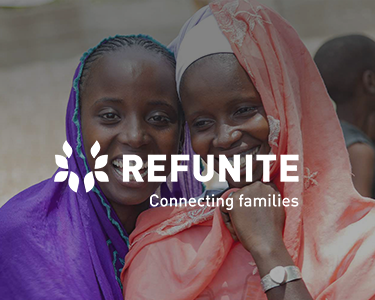
Nearly half of the refugees are children. Five percent are babies, and 2,000 of the women are breast-feeding, according to Unicef.
KARASU, Uzbekistan — “I have three children — 9, 7 and 4 years old — and they are just in shock,” a woman named Ursanoy Mamadaliyeva said on Monday. “My youngest said to me, ‘Mama, if we return to Kyrgyzstan, then you have to buy me an automatic weapon.’
“Do you think that that is normal?” she asked. “The child is 4 years old. And he says, ‘I am also going to shoot.’ Is that normal?”
Tears welled in her eyes.
“I don’t want my children to live like this,” she said.
Roughly 80,000 ethnic Uzbeks like Ms. Mamadaliyeva, 30, have fled ethnic rioting this month in Kyrgyzstan and crossed the border into this part of Uzbekistan, often arriving with nothing but awful memories, after their homes were ransacked and set ablaze.
This mass exodus has created one of the most severe refugee crises in the former Soviet Union since the collapse of Communism nearly two decades ago.
It is also unusual in that more than 90 percent of the people in camps in Uzbekistan are women and children, with most of the rest elderly men, officials said. Nearly half of the refugees are children. Five percent are babies, and 2,000 of the women are breast-feeding, according to Unicef.
Able-bodied ethnic Uzbek men have remained behind in Kyrgyzstan to defend their wrecked neighborhoods, and many have told their families to stay put in Uzbekistan because it is too dangerous to return. Those warnings seemed borne out by renewed violence on Monday in southern Kyrgyzstan, with two Uzbeks killed in confrontations with Kyrgyz security forces.
The refugee camps in Uzbekistan are filled with anxious women who desperately want to return home but are so scared of more bloodshed that they will not leave. The children are also showing signs of trauma.
The camp here has set up a sparse activities tent for the young, and on Monday, a stack of their pictures was on display. One child used crayons to draw a tank that was strafing a crowd of fleeing civilians, a corpse on the road squiggled in red. Another sketched her home in flames, a nearby stick figure sobbing.
Some women have lost close relatives or friends, and they are overwhelmed by grief that is all the more piercing because they cannot properly mourn so far from home.
“My son died, he was only 23. They shot him, and I ran away and was not able to help him,” said Zukhra Korchkarova, 48. “They buried him, and I cannot go to see his grave.”
While the Uzbek refugees are nearly all citizens of Kyrgyzstan, the weak interim Kyrgyz government has not undertaken any significant campaign to help them or encourage them to return. It seems far more preoccupied with just regaining control over southern Kyrgyzstan.
Many Uzbeks said they were attacked in their neighborhoods by the Kyrgyz military, including soldiers riding armored personnel carriers and wielding automatic weapons. Members of the provisional Kyrgyz government, denying that any soldiers were involved, have generally blamed the ousted Kyrgyz president, Kurmanbek S. Bakiyev, for fomenting the violence. He has denied the accusations.
The camps, which are being run by the Uzbek government with the assistance of international aid groups, appear to be well-organized and clean. But aid groups said they worried that as the crisis drags on, the Uzbek government would be financially and logistically stretched. Because the refugees arrived in June, officials were able to use schools that were not in session to shelter them.
Ethnic Uzbeks are only about 15 percent of the population of Kyrgyzstan, but they largely live in the country’s south, near Uzbekistan. When the fighting erupted, many Uzbeks viewed Uzbekistan as a natural safe haven.
Several thousand people have left the camps to return, but the majority appears reluctant to do so. Women said every day they weighed the risk of going back versus the anguish of being away from their husbands.
“Everyone is truly scared,” said Raimah Nizamova, 48, a nursery school teacher who has two grandchildren at the camp. “The day before yesterday, we received a call from there and they said, ‘Don’t come back, they are shooting again, they are murdering again.’ We have such stress.”
Zulfia Satvoldiyeva, 34, who has three children at the camp, said many people felt hopeless because their homes and stores were destroyed.
“The idea of returning is horrible to many people,” she said. “Why doesn’t the government in Kyrgyzstan say, ‘Please return, we will help you, we will provide for you, we will make sure that you are safe.’ But they don’t do that.”
Savita Naqvi, a spokeswoman for Unicef in Uzbekistan, said it was extraordinary to have a refugee crisis in which the vast majority of the refugees were women and children. But she said this composition might indicate that the emergency could be solved quickly if Kyrgyzstan became more stable.
“Families have been separated, so there is a lot of motivation to go back,” she said.
At the activities tent, Mukhlisa Mashirapova, 15, said many children were upset because their fathers were in Kyrgyzstan and in jeopardy. She said she wanted to leave, but could not.
“I talked to my father, and he said, ‘Don’t come here, because people are starving here,’ ” she said. “A lot of the children are crying at the camp. They have seen so much with their own eyes. And for a lot of them, their parents are still back there.”
Her mother, Mutabar Kadiraliyeva, 49, an art teacher, said she was not surprised that the artwork had turned out so grim. She said that she had had some success trying to coax the children to draw happier pictures.
“They see all this horror, and you know how children are, they draw what they have seen,” she said. “When they first arrived and they saw the Uzbek soldiers posted in front of the camp, they ran away and hid in the tents. They did not understand the difference, that the soldiers were here to protect them.”
Source: The New York Times
By Clifford J. Levy


